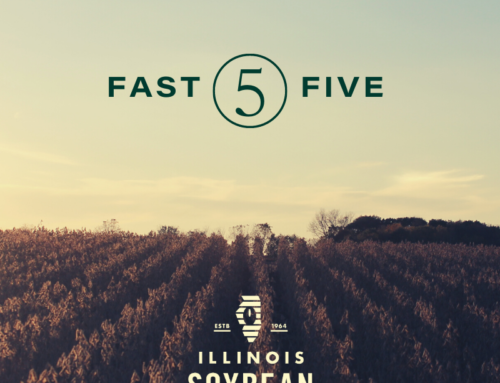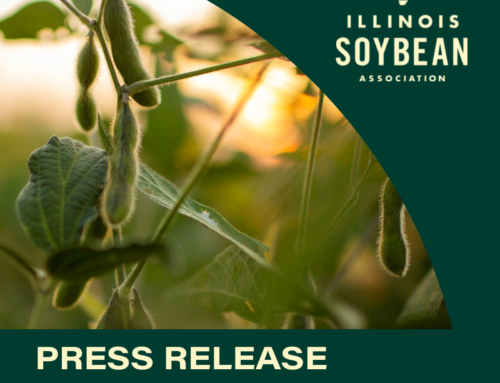From start to finish, the Illinois Soybean Association (ISA) works to be involved in every step of soybean production. On April 22 and 23, I had the opportunity to accompany a group of Korean grain buyers as they took a deep dive into the export supply chain of soybeans and soy products.
Joining the International Grains Program (IGP) Supply Chain Expedition, we saw the business, logistics, and industry sides of soybean exports. A meeting with the CME Group in Chicago gave a glimpse into the robust business of agricultural trade. The CME group serves as a leader in agriculture futures and options markets with a diverse set of offerings serving customers around the world. Agricultural marketing is a vital part of a farmer’s livelihood as it moves commodities from the producer to the consumer. According to CME, futures and options are two different ways of marketing, “A futures contract is a legally binding agreement to buy or sell a standardized asset on a specific date or during a specific month. An option on a futures contract is the right, but not the obligation, to buy or sell the underlying futures contract at a predetermined price on or before a given date in the future.” These two forms of marketing help to mitigate some of the price risk associated with buying and selling commodities.
The second stop brought the group to Plus 500 for a meeting with Cunningham Commodities and Advanced Trading Inc (ATI). Cunningham Commodities is one of roughly 25 Futures Commission Merchants (FCM) left taking orders for those wishing to buy or sell futures and options trading 5 to 6 billion bushels annually. ATI is an Independent Commodity Brokerage Firm that analyzes agricultural markets and provides risk management services to its customers.
The following day, we visited DeLong in Joliet for a tour of their processing and loading facilities. With 30-plus years of practice, their knowledge and management practices allow them to maintain a strong relationship with those they work with. Both on the DDG and soybean side of their business, they deliver quality and consistency to their customers. Specifically on the soybean side, they manage both conventional and non-GMO beans and can load between 500 and 700 containers per day. While they practice just-in-time shipping, they have the capacity to store 15,000 metric tons, whereas beans would spend 2 to 3 days on-site. Their newly built processing facility allows them to clean or separate soybeans to various specifications of the buyer for non-GMO, food-grade, clean, or conventionally grown soybeans, with real-time samples being taken for each container that leaves their facility.
The next stop took us to Marquis Energy with a tour of their ethanol plant and the future site of their soybean crushing facility. Marquis is committed to sustainability and positioned for growth. They are dedicated to producing a sustainable ethanol product and becoming self-sufficient in their energy use and production. Processing around 380,000 bushels of corn, they export up to 60 percent of the ethanol produced and nearly all the DDG by-products. However, the outlook for soybeans holds promise with plans to crush 4000 metric tons of soybean meal per day as they hope to open the new facility in 2026.
Our last stop of the day was a visit to the farm ISA Board Member, Jim Martin. The group of Korean grain buyers, throughout the day, were able to see every aspect of soybean production. With a farm visit during planting season, Jim highlighted his dedication to putting a high-quality seed in the ground and giving it the proper start to grow. He was able to walk the group through the farming cycle and showcase his passion for cultivating the ground. On these farm visits, ISA staff and the grower leaders can differentiate Illinois soybeans by building relationships and putting a face behind the products they buy.
Throughout this portion of the IGP Supply Chain Expedition, ISA participated in valuable conversations with buyers from one of our top markets. By making personal connections and visiting an Illinois farm, these buyers learned and visualized the advantages of Illinois-grown soy and our farmers’ commitment to sustainability and quality.

